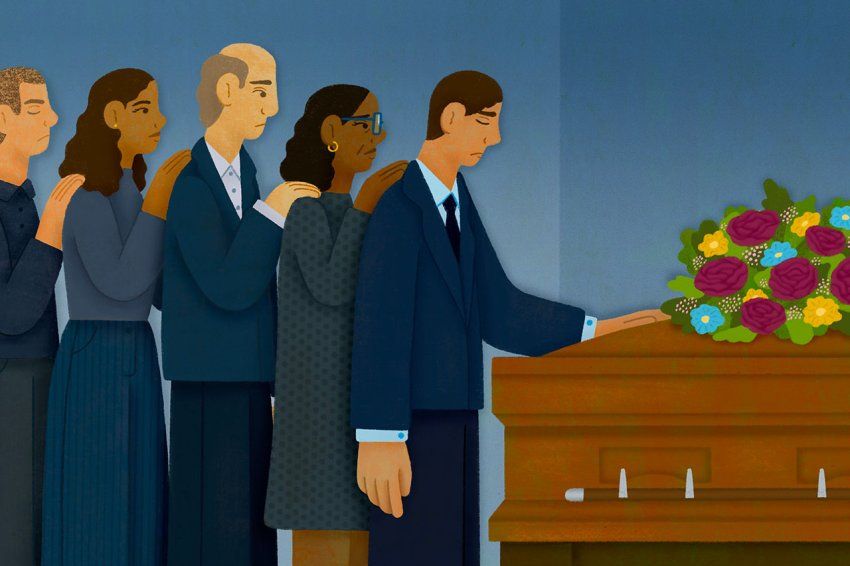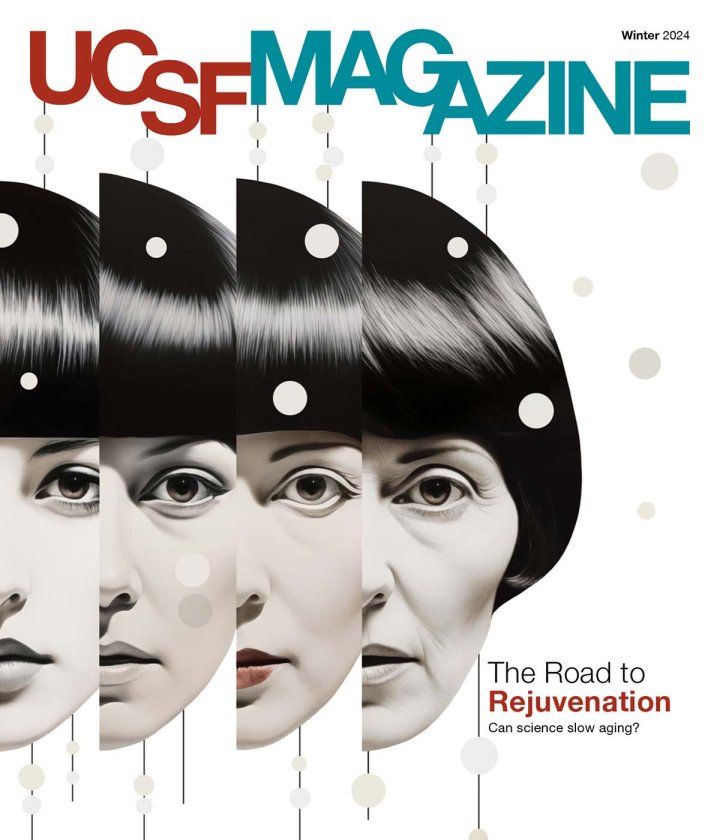
How to Grieve – and How to Help Others Through Times of Loss
A grief facilitator and UCSF chaplain shares some advice.

The experience of death and loss is universal, but it’s difficult to talk about end-of-life issues – even in hospital settings. We went to Jun Caole, DMin, a grief facilitator and the staff chaplain at UCSF Health’s Mission Bay campus, for guidance on processing loss.

Can you describe your work as a hospital chaplain?
I care for people as whole beings. I still have patients who think they are dying when I see them, and I give them the last rites. However, palliative care chaplains do more than that. I consider my work holistic, addressing how people’s existential needs affect their physical, emotional, mental, relational, and spiritual well-being.
What question do you get asked the most?
The question I get over and over again is: Why me? Why am I suffering this way? Instead of giving specific answers – because there is no right or wrong answer – I invite people to explore what they mean when they ask those questions. Existential issues often come up: guilt, forgiveness, fear, broken relationships, all sorts of things. Listening and helping people name and explore these things is what’s most important.
Grief shared is grief diminished. It helps us to know that we are not alone.”
How can someone help a loved one who is experiencing loss and grief?
Be fully present. Really focus on the person and what they are saying – and don’t be concerned about what you are thinking or what you’re going to say. It’s OK to say, “I noticed you’re getting tearful while you’re talking about this. Tell me more. How are you feeling right now?” Focus on validating and affirming them, not giving your own opinions or advice.
How do you provide support that accommodates all belief systems?
I see people from many different religious traditions and with a range of philosophical beliefs and values, but they all share common emotions when faced with the death of a loved one. I am a firm believer that rituals are one of the most helpful ways of processing grief. While many of these are rooted in religion, nonreligious rituals can help folks, too. Nature walks, journaling, listening to a loved one’s favorite music, talking to them after they are gone – these are just a few examples. I invite folks to create rituals that give them a sense of order. One participant in my grief support group said her brother’s death brought chaos into her life. She created a ritual of making collages of his photos, and this helped her regain a sense of control.
What are the healthiest ways to grieve?
Each person grieves differently. Grieving the death of a loved one usually comes with so-called secondary losses, such as a loss of meaning and purpose, normalcy and order, or identity and belonging. Acknowledging and honoring these losses is important. To some folks, this can be done by talking about their emotions with somebody they trust. For others, mindfulness practice is a better fit. Joining a grief support group is one of the best ways to process loss.
The truth is, most of us need to have our grief witnessed and validated by others. Ignoring or suppressing our emotions and thoughts can cause prolonged grief and a sense of suffering.
Do some ways of grieving bring comfort faster than others?
In my experience, there are two kinds of grievers. “Intuitive grievers” have no problems expressing their emotions or losses. “Instrumental grievers,” on the other hand, do not talk about their emotions, but use tasks to process their grief instead.
For example, I have a relative who is an instrumental griever. After his mother passed away, he immediately returned to work and resumed his everyday life, including doing his favorite hobbies, as if nothing had happened. His lack of showing grief emotions struck me. I did not understand that this was his way of grieving. Years later he explained, “I went fishing, and that was how I processed my grief.”
There is no wrong way to grieve, but people who are not able to talk about their grief emotions often have more difficulty.
Talking about death and grief can feel quite taboo.
The reality is that we are surrounded by death, loss, pain, and suffering, but American culture is just so into the positive side of life. We are knowledgeable about so many things, but not grieving. We need to make talking about death and grief a natural part of discussions in public forums, and we need to teach young people, at an early age, that these things are normal.
In one of my grief support groups, I met a couple who lost their son when they were in their 70s. They said, “At our age, we should know how to deal with this – but we don’t have any clue.”
What should someone do if their grief doesn’t get easier with time?
When grief affects your ability to function daily, or when your physical reactions to it literally make you sick, grief may become clinical depression, and it is appropriate to seek professional therapy.
What’s your most important takeaway for readers?
When dealing with a grieving person, stay and make space for them to be heard and to be seen. It sounds simple, but it’s hard to do.
To process grief, we need community. It could be a grief support group or a faith community, or it could be two people really listening and interacting. When grief is witnessed in a communal way, it helps people bear the weight of it. Grief shared is grief diminished. It helps us to know that we are not alone.




